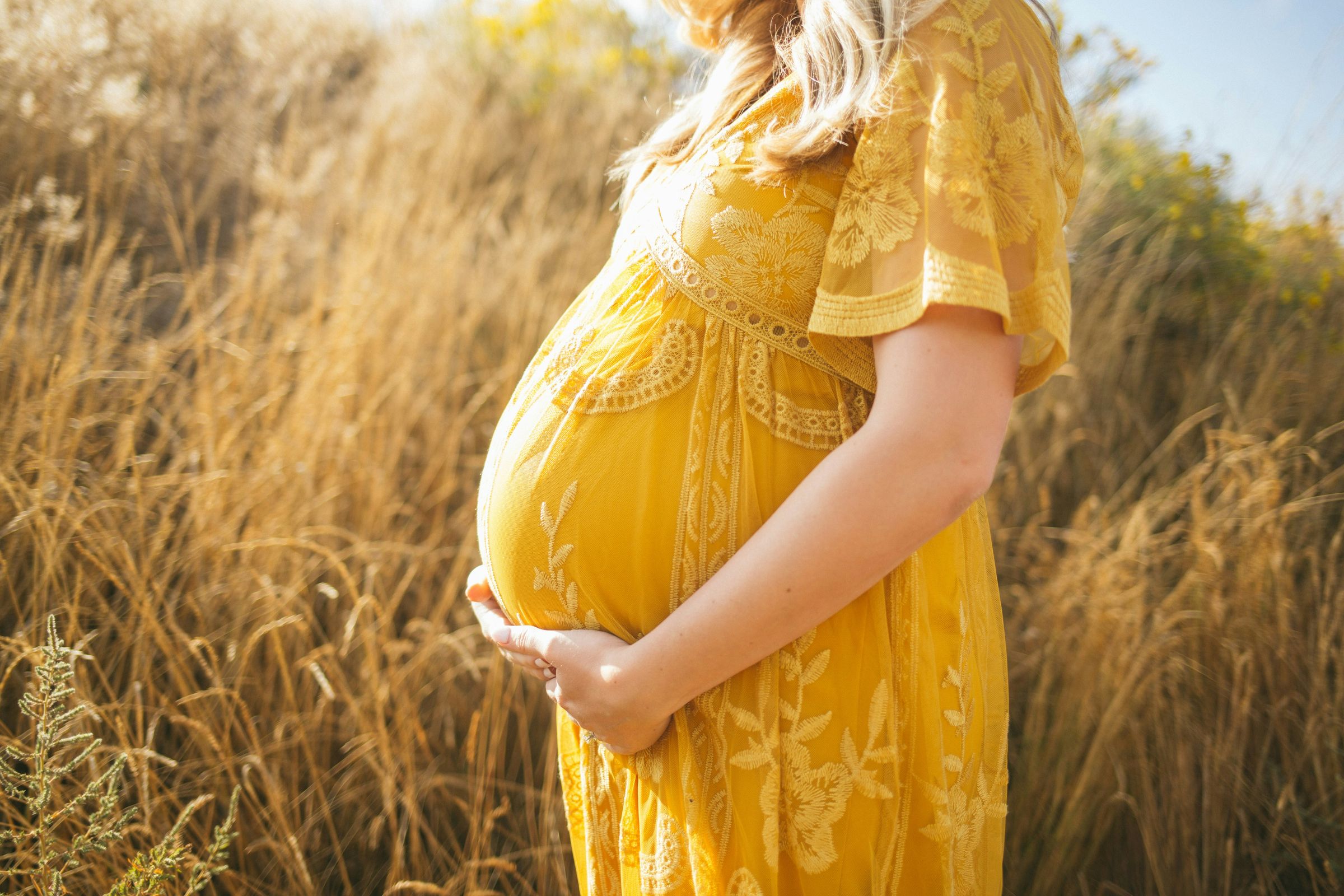How to Manage Neck Pain During Pregnancy
Written by Michael Angelo, PT

Neck pain during pregnancy is just one of the many diverse side effects you might experience while waiting to meet your little one.
However, it’s not something you have to endure in silence.
What Causes Neck Pain During Pregnancy?
Neck pain during pregnancy isn’t just something you have to put up with. Understanding what’s causing it is the first step toward finding relief.
Hormonal changes are one of the main culprits. As your body adjusts to pregnancy, these shifts can lead to discomfort, including tension and pain in the neck and shoulders.
Poor posture is another common cause. As your bump grows, your center of gravity changes, which can affect how you sit and stand, and put extra strain on your neck.
Muscle strain also plays a role.
Trying to find a comfortable sleeping or sitting position with a growing bump can lead to awkward angles and tension in the neck area.
How Do Hormones Cause Neck Pain During Pregnancy?
Hormonal changes during pregnancy can contribute to neck pain, mainly due to rising levels of relaxin and progesterone.
Relaxin helps prepare your body for childbirth by loosening ligaments in the pelvis, but it also affects other areas like the neck and spine. This can make you more vulnerable to strain and discomfort.
Progesterone can impact muscle tone and ligament stability, leading to fatigue and added tension in the neck and shoulders.
As your baby grows, especially in the second and third trimesters, your center of gravity shifts forward. This change places extra pressure on your upper back and neck.
Research also shows that many pregnant women experience musculoskeletal issues like lower back and hip pain in the third trimester (Kesikburun et al., 2018). Combined with poor posture or awkward sleep positions, this makes neck pain even more common and uncomfortable during pregnancy.
How To Manage Neck Pain During Pregnancy
Neck pain is common during pregnancy, but you don’t have to suffer through it.
There are plenty of science-backed ways to prevent and relieve pain, including better posture, light exercises, memory foam pillows, and more. Here are the highlights to note!

1. Light-Intensity Exercises
When it comes to preventing neck pain during pregnancy, research has found that exercise therapy can reduce neck, back, and pelvic pain (Fiat et al., 2022).
However, it’s best to keep your exercise light. Popular options include gentle neck stretches, chin tucks, pelvic tilts, and back stretches.
Add these to your morning or night routine and stay consistent for the best results.
2. Memory Foam Pillows
Memory foam pillows are a popular tool for reducing neck pain. The innovative material helps to align the neck and spine, further reducing pain and stiffness and improving posture as you sleep.
The Groove Memory Foam Pillow helps pregnant women sleep more easily and without pesky neck pain. However, it’s not the only memory foam pillow option.
Research shows that adjustable pillows can significantly reduce neck pain (Yamada et al., 2023). Therefore, the Groove Body Pillow is a great option if you want a pillow that adjusts to your body’s needs.
This innovative pillow offers full-length memory foam support while being adjustable, so you can rest without added pain. Perfect for those nights where you can't find a comfortable position!
Shop Now3. Improve Your Posture
Improving your posture during daily activities can significantly affect pregnancy neck pain.
Keep your shoulders relaxed and avoid slumping forward while sitting or standing. Active effort in these areas has been proven to improve shoulder, mid back, and lower back pain (Kim et al., 2015).
4. Regular Movement
Similarly to specific exercises, regular movement can help maintain muscle strength and flexibility.
Activities like walking, prenatal yoga, and swimming are all beneficial, as they help you stay healthy and reduce any extra aches and neck pain.
However, be cautious not to overexert yourself. Avoid lying on your back after the first trimester, as this position can compress blood vessels and lead to discomfort.
You should also look out for dizziness, headaches, calf pain, or vaginal bleeding, as these are signs that you should cease the exercise and contact your doctor (Cooper and Yang, 2023).
5. Work With Your Doctor
Lastly, if you’re experiencing neck pain during pregnancy, you should always consult your doctor or healthcare provider before trying new exercises or lifestyle changes.
Every pregnancy is unique, and personalised advice is critical for your health and the progression of the pregnancy.
If the pain becomes severe, stops you from doing daily tasks, or is the result of an injury, seek urgent medical attention.
Final Thoughts on Neck Pain During Pregnancy
Regular movement, better posture, and general light exercises are key to being more comfortable.
Remember, when in doubt, you should seek medical advice.
Don’t forget to add an ergonomic memory foam pillow to your prevention strategy.
For improved sleep comfort and less pain during the day, consider the Groove Body Pillow for better neck and spine alignment.
Or see our full range of pillows here.
Shop NowAbout The Author
Michael Angelo, PT, DPT, CFMT is a Physical Therapist in Tucson, Arizona, USA.
He got his Doctorate of Physical Therapy from Northeastern University in Boston Massachusetts and is passionate about manual therapy and helping patients bridge the gap between recovery and return to their optimal activities.
He currently lives with his wonderful wife and three elderly dogs who all enjoy camping, hiking, and anything in the outdoors.
References
- Cooper, D.B. and Yang, L. (2023). Pregnancy And Exercise. [online] PubMed. Available at: https://www.ncbi.nlm.nih.gov/books/NBK430821/.
- Fiat, F., Merghes, P.E., Scurtu, A.D., Almajan Guta, B., Dehelean, C.A., Varan, N. and Bernad, E. (2022). The Main Changes in Pregnancy—Therapeutic Approach to Musculoskeletal Pain. Medicina, [online] 58(8), p.1115. doi:https://doi.org/10.3390/medicina58081115.
- Kesikburun, S., Güzelküçük, Ü., Fidan, U., Demir, Y., Ergün, A. and Tan, A.K. (2018). Musculoskeletal pain and symptoms in pregnancy: a descriptive study. Therapeutic Advances in Musculoskeletal Disease, 10(12), pp.229–234. doi:https://doi.org/10.1177/1759720x18812449.
- Kim, D., Cho, M., Park, Y. and Yang, Y. (2015). Effect of an exercise program for posture correction on musculoskeletal pain. Journal of Physical Therapy Science, [online] 27(6), pp.1791–1794. doi:https://doi.org/10.1589/jpts.27.1791.
- Yamada, S., Hoshi, T., Toda, M., Tsuge, T., Matsudaira, K. and Oka, H. (2023). Changes in neck pain and somatic symptoms before and after the adjustment of the pillow height. Journal of Physical Therapy Science, 35(2), pp.106–113. doi:https://doi.org/10.1589/jpts.35.106.

